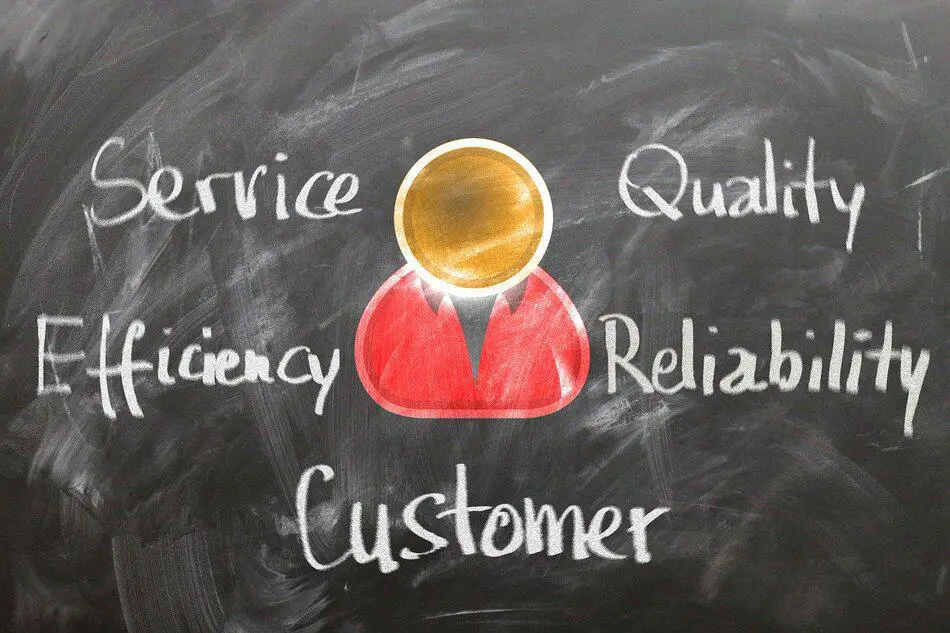Acquiring a customer can cost five times more than encouraging a customer to stay with your service. But that is easier said than done.
How do you know what factors are important to truly encourage a customer, so that he or she sticks with your service?
To answer that question, I’ve combined my personal experience with additional research found in academy and included several factors, based on a variety of different fields, which can give us clues about where to look, so your customers are more likely to stay.
Let’s get started…
Customer satisfaction impacts customer retention
The number one thing which I realized across was the emphasis on how important customer satisfaction is when it comes to retaining a customer.
Which makes sense, considering that if the entire experience when a customer first heard about your product or service, to the moment he or she purchased your service/product, until the moment where the customer is given the choice to validate to repurchase it, then this is definitely an important factor.

So, for example, if your marketing and sales team has done a fabulous job in understanding your customer and is giving him the perfect product including an amazing experience during the sales process.
Then the same experience, and care must be continued during the for example onboarding experience after the sale. And well, to be blunt along the entire customer journey, up until the point where your customer is deciding again which product or service to choose from now.
Which at this stage, is hopefully easier if you keep up the experience and the interactions with you across the customer journey.
Remember all businesses are people businesses. And in many cases while comparing features, the appearance, and the level of service your customers receive in this early stage by your e.g. sales or marketing team can even sometimes cover flaws from your product or service.
The term customer satisfaction is however broad but should give you a first factor to consider when looking at your customer retention strategies further down the road.
Switching costs impacts customer retention
In a study with 223 participants one of the most crucial factors impacting customer retention has been found to be switching costs.
Basically, the cost of you switching from one service to another. Let me give you some examples.
Switching from a toothbrush created by Oral B to a toothbrush from a no name brand has rather low switching costs. You simply go to the next store and buy a toothbrush use it for some time and then dispose of it. Easy right.
Interesting side note: According to this article you are advised to switch your toothbrush every three to four months, to ensure that the bristles are still effective.
Now consider switching from Spotify to for example Apple music. Imagine that you have created your own playlists and you’re following your friends on Spotify.
You have Spotify installed on all of your devices and in addition because of the time you’ve been at Spotify are getting additional benefits.
For example, their algorithm knows what music you like so you’re getting some fairly good music suggestions which makes you happy since you don’t have to listen to your old songs all the time.
The threshold and the pain for a user to move now from Spotify to Apple music comes into play. So moving from one service to the other is simply harder.
This is due to higher switching costs because you might need to buy an iPhone first to use Apple music. Plus, you then must also build your playlists and find your favorites songs again on apple music and convince your friends to move to Apple music as well so you can share the experience together.
The switching cost is a little bit higher but still acceptable if the customer thinks that the value, he or she receives is worth the trouble.

Now lastly think of a big organization considering their IT strategy for the next five to ten years.
Switching, for example from one software to another on a companywide scale can be expensive – trust me on this I advise companies for a living about this matter.
Which means these companies will think long and hard about the switching costs and if the value from switching to a different service is favorable enough to actually switch.
Customer retention is influenced by service quality
This probably does not come as a suprise, but researchers confirmed that the service quality, so how well your customer serive interacts with customers is an important factor when retaining your customers.
What plays into this factor are examples of happy, courteous staff members. Who are in general friendly and trying to figure out a way to help the customer.
What has also been found in this article for example was the emphasis of the staff just knowing a little bit more then just the specs of a product for example.
If a customer service agent for example was able to provide information which was just a tiny bit more, think of advice on local restaurants from hotel member staff. Then this is an amazing way to ensure that the customer gets a well-rounded package of an experience.
Quality and value impacts customer retention
Another factor impacting customer retention is simply if the product or the service your customer has decided to purchase is qualitative enough that it brings value.
Think of you purchasing a navigation system (maybe the phone screen is too small, and you simply prefer a navigation system). If you have purchased a navigation system and it sometimes doesn’t work properly.
Or the user interface is not as clear and easy to understand as you expected then chances are that you might switch to another navigation system.
This factor of providing qualitative service has been confirmed in a study based on Las Vegas hotels. Customers of hotels would choose the same hotel again if the hotel room was for example clean.
The same goes to public areas and factors such as making their customers feel safe.
Price fairness as factor for customer retention
Alright the factor of price fairness plays a key role when it comes to customer retention. Price fairness is always a tradeoff between a perceived benefit, something I would pay for to get fixed/done/experience and so forth. Versus the sacrifice or the personal cost of getting the product or service.
If your service is priced fairly in relation to the value it brings the customers are likely to stay.
But if a customer feels that paying 300$ for an online course which has inferior quality, no real value and just doesn’t feel worth the price tag. Well then you can confidently assume that this customer is going to leave.
So, considering if the price tag matches the perceived value is immensely important when it comes to customer retention.
Customer retention influenced by relationship
This factor is tied quite deepdly to customer being able to build trust. Trust is build by interactions with each other, and by sticking to your word for example.
So if you as an organization are able to position yourself as the most trustworthy company who provides a certain service then it certainly helps keeping employees.
I mean why would I pay for a service who is not being able to “walk the talk”. So when engaging with your customers make sure to stick to your word, consider transparency for decisions as well.

Because if a customer can understand the reasoning and knows that they’re able to trust you, well then, they might forgive one or two missteps, e.g. building faulty product features.
This factor and switching costs are based on the research I’ve seen immensely dependent on each other. If you like a service and the interactions with a company then switching to another service, just can become even harder because of the uncertainties of the new service.
Expectation management helps customer retention
Setting the right expectations for customers is a significant factor on their thought process to either stay or leave a service.
If the expectations are not set correctly, meaning that if you have promised too much and cannot follow up on it. Then it is simply quite likely that your customer will move on to another service.
Based on the research I’ve done I found that if a company is able to exceed the expectations of a customer, even by just a small margin is having a big impact on the customer’s choice of staying with a particular service.
Knowing your customer helps building strategies
A crucial factor in customer retention is that you need to understand and know your customer. Meaning who is your customer, who is the person who is currently using your service. Is he or she the right demographic, do you even want to retain this customer?
Why has this customer chosen your service and not another? What is the hope of this customer that he decided to go with your product or service?
If you know and understand that, then you can tailor your retention strategies or campaigns to your specific audience.
Because for example a millennial has sometimes a different perspective on the world and different values which matter for him or her, than for example the baby-boomer generation.
Considering the customer lifetime value
An interesting perspective, which I really wanted to share with you as well is the fact of considering a customer’s lifetime value.
Meaning how much money can you make with this particular customer over the entire time span of using your service.
Think of it again as an additional factor to consider when creating retention strategies. Maybe it even makes sense based on how well you know your adueicne to only focus on keeping a particular type of customer with a higher lifetime value over another.
Which means the more targeted your retention strategies are towards a particular subset of your customers then the more likely it can be that you succeed in retaining your most valuable customers.
Repurchase intention of customers
The last factor on the list is related to the intention of a customer to purchase your service again.
While retaining a customer, meaning customers buying a product or service again is comprised of all the above factors there is another perspective considering the service you offer.
If your service is a onetime solution. Meaning you use it onetime and after you’ve done what you needed to do with the service you put it away or simply forget about it.
Then the question is how much of a need does the customer have to use it again. Meaning if the occasion for when your service or product makes sense arise only once every x months, years and so on.
Then the question is did you manage to make the experience so memorable that the customer will be thinking of you again and will go back to your product or service when the need arises.
Or does your service have a continuous feature or something which is reminding the customer of your product or service. Or is it something that he or she cannot live without anymore.
If your customer cannot live without your service or product then the process of retaining this customer might become a lot less difficult or resource heavy.

